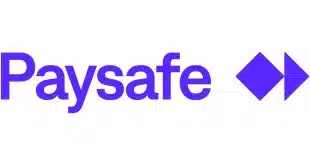Contactless debit cards will make their formal debut in Canada next year with the launch of Interac Flash from Acxsys Corp.’s Interac Association, Canada’s national debit network. Interac’s first two Flash issuers are Scotiabank and RBC Royal Bank, which will roll out their first contactless cards next summer. The first acquirer is TD Merchant Services, a unit of Toronto-Dominion Bank. More issuers and acquirers are on the way, an Interac spokesperson tells Digital Transactions News, though no announcements have been made yet.
Interac and the banks tested Flash this summer at some high-volume, small-ticket merchants in downtown Toronto. The spokesperson expects national merchants will be making formal announcements about acceptance. “There’s a lot of excitement in the merchant community,” she says. “Merchants are looking for that faster throughput.”
In a statement, the Retail Council of Canada endorsed the new card. “Interac Flash is a welcome and needed addition to the Canadian retail marketplace,” said Diane J. Brisebois, the trade group’s president and chief executive. “Merchants will now be able to provide customers with a faster and more convenient checkout experience while reducing the costs of handling cash.”
The Interac spokesperson adds that consumers, too, have been signaling that they want to use debit cards as substitutes for cash in small transactions at convenience stores, fast-food restaurants and transit. Interac estimates Canadians annually make $90 billion in cash payments for purchases under $20.
For most small transactions, cardholders won’t be required to enter their debit card PIN as they usually do. But to control risk, Interac has its own measures that include dollar maximums ranging from $25 to $100 spread over a number of transactions, after which the cardholder would be prompted to enter his or her PIN. Each issuer can add its own limits on transaction and dollar volumes and other fraud-control measures.
Interac is pricing Flash transactions in accordance with its existing wholesale price schedule that charges acquirers 0.729 cents per transaction. Typical acquirer pricing to merchants ranges from 6 to 8 cents per transaction.
Interac Flash comes on the scene during a period of big changes in Canada’s payment card market. The country is in the process of converting from conventional magnetic-stripe cards to the so-called EMV chip-and-PIN system. Also, the first Visa-branded debit card appeared recently, a card that in its development phase aroused considerable merchant angst because of its higher acceptance costs than Interac. The move to contactless PIN debit also follows a similar move by the Star electronic funds transfer network in the U.S., which announced its CertiFlash card this summer.
Flash runs on the EMV chip, according to the Interac spokesperson. The issuer, however, must add the radio frequency identification (RFID) technology to enable contactless interaction between the card and the point-of-sale terminal.
About 65% of Interac’s cards will have the EMV chip by year’s end, according to the spokesperson. Interac has 22 million active and 30 million cards in all, the spokesperson says. All cards and ATMs— dubbed in Canada as ABMs, for automated banking machines—are to be converted to the EMV system by the end of 2012, with POS locations to be converted by the end of 2015. All cards will continue to have mag stripes until 2015 under current plans.
Separately, Interac announced Tuesday that the big Canadian coffee and doughnut restaurant chain Tim Hortons now accepts debit cards at most of its locations in Canada’s eastern provinces. The chain began accepting debit in Western stores in 2003, and the new locations mean about 90% of Hortons’ 3,000-plus stores nationwide take debit. JPMorgan Chase & Co.’s Chase Paymentech Canada subsidiary is Tim Hortons’ acquirer.






